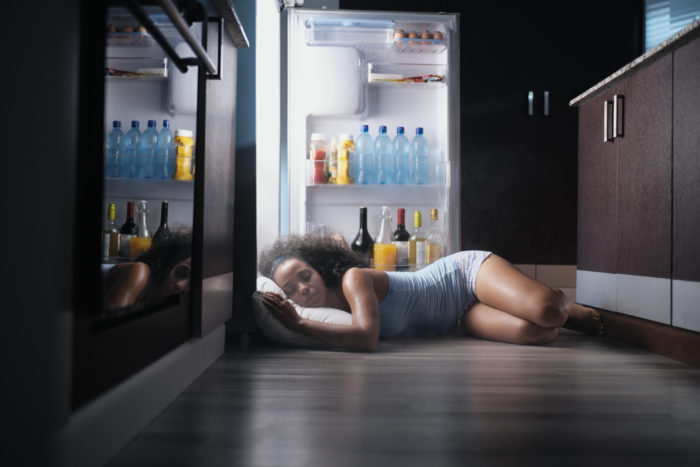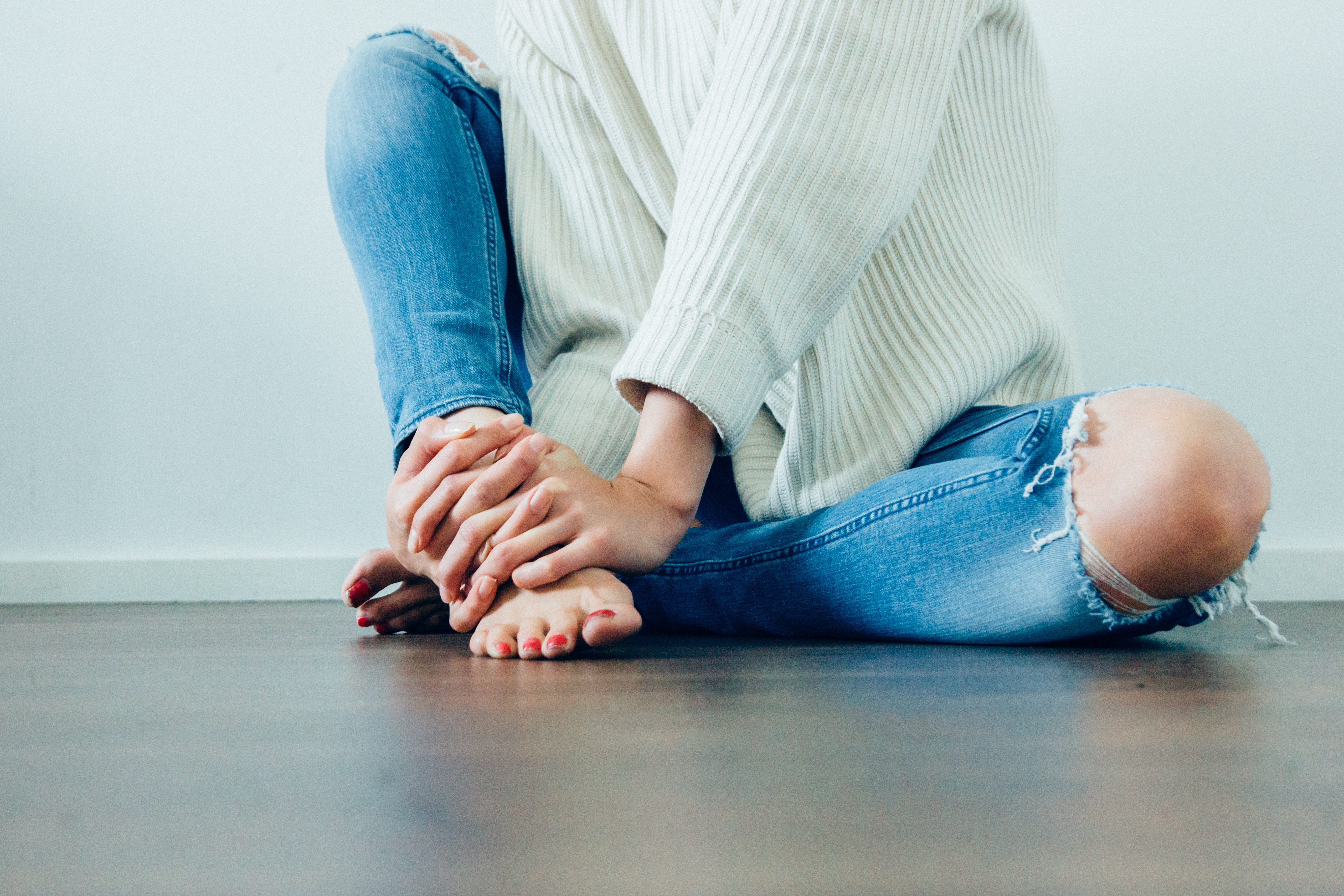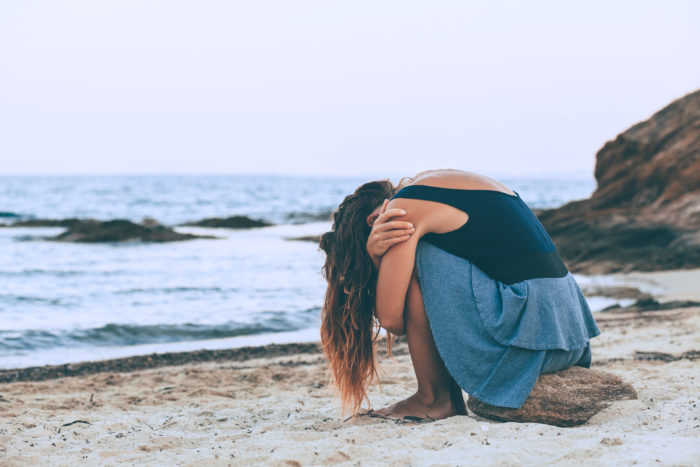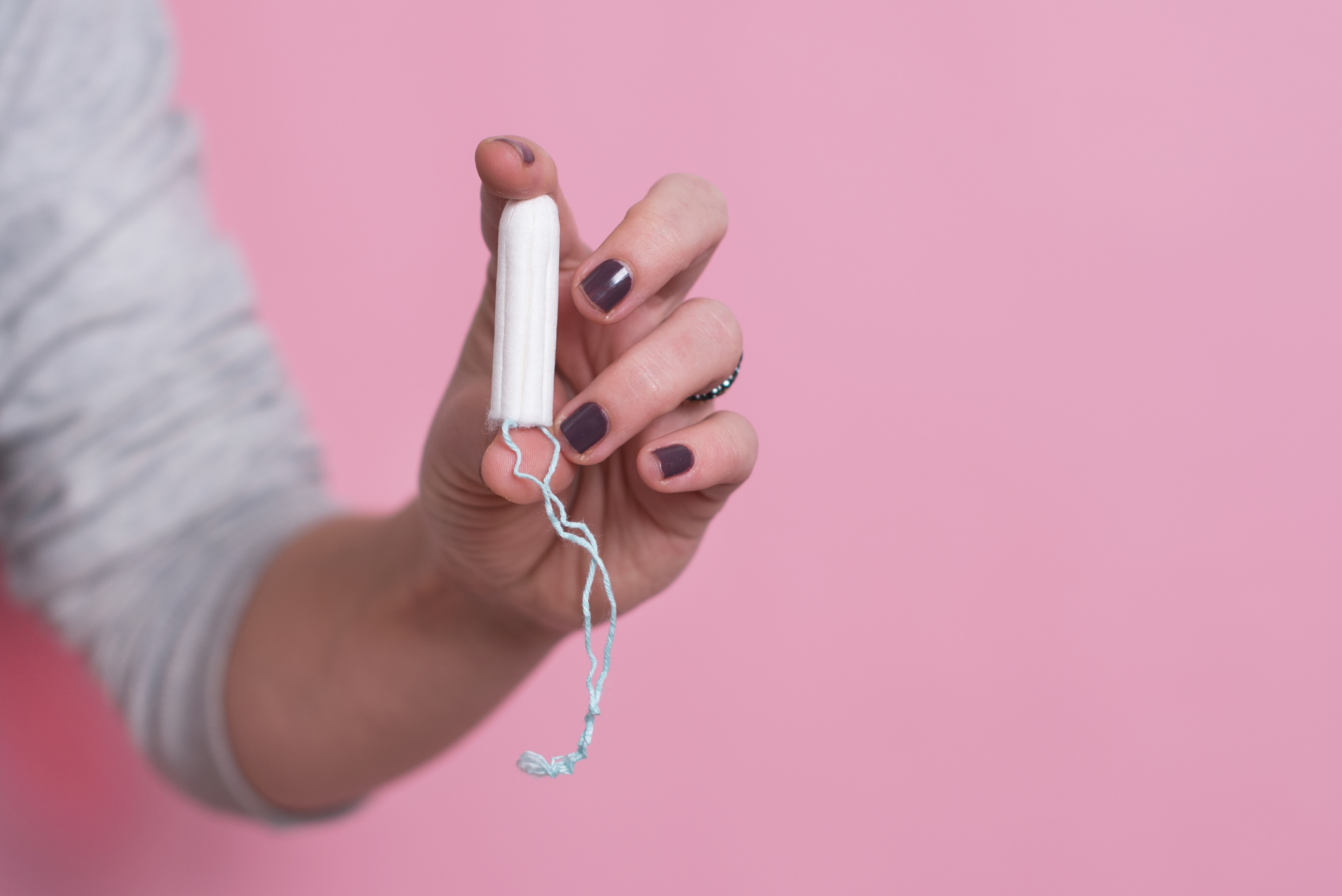Do you suffer from symptoms of low estrogen?
The answer to this question might not be as obvious as you may think.
If you’re in your 20’s, 30’s, or even 40’s, you might think that there’s no way you could have low estrogen.
But low estrogen isn’t just reserved for women going through menopause.
Low levels of this critical sex hormone can affect women of childbearing age too. And can actually make you feel like you ARE going through menopause.
Estrogen is far more important to our bodies than just keeping our cycles regular and enabling us to get pregnant. And when this hormone is thrown out of whack, it can make us feel pretty miserable.
If you’re struggling with some unexplained symptoms and suspect it might be your hormones, keep reading… this article is for you!
In this blog post you’ll learn:
- Some of the surprising symptoms of low estrogen
- What can cause this hormonal imbalance
- Some steps you can take to correct it
Estrogen levels do fluctuate during your monthly cycle. But having consistent low levels of estrogen is not healthy or normal. And it sure doesn’t feel good!
Now there are a few times in a woman’s life when having lower levels of estrogen is normal. Like right after having a baby and when she’s going (or gone) through menopause.
But if you’re experiencing symptoms of low estrogen and you don’t fall into those categories, you need to dig a little deeper into why.
What is Estrogen?
Estrogen is one of a woman’s two dominant sex hormones. The other primary sex hormone in women is progesterone.
And estrogen isn’t actually just a single hormone, but there are three different forms of estrogen.
Each of these forms plays a slightly different role in the female body, and are all essential for maintaining optimum hormone balance.
The most abundant form of estrogen is Estradiol (E2).
And the other two forms are Estriol (E3), which is most abundant during pregnancy, and Estrone (E1), which is a precursor to Estradiol.
While the main purpose of estrogen is for reproduction, this hormone actually affects over 400 functions in our bodies.
Why Estrogen is So Important
Most of us are familiar with the role estrogen plays in our reproductive and sexual health. But did you know that estrogen levels also influence our bone density, appetite, and mood, among a host of other things?
This sex hormone is actually responsible for helping to support so many systems in our bodies. And when it’s out of balance, we can experience such a wide range of symptoms.
Estrogen is actually needed for proper bone development in both males and females. And in adults, estrogen is critical in maintaining bone strength.
This is why it’s so common for women of menopausal age or with hypothalamic amenorrhea to suffer from osteoporosis or low bone density.
Skin cells also contain estrogen receptors. And estrogen has been shown to actually help modulate certain skin cells which help maintain skin elasticity.
Estrogen can also regulate appetite in a similar manner as the hormone leptin.
This sex hormone actually helps the brain to determine if the body needs more energy (in the form of calories from food). And this will directly impact hunger signals depending on what our bodies need.
Estrogen has also been shown to increase serotonin receptors in the brain, which helps to regulate mood and produce more “feel-good” endorphins.
I could write an entire blog post about the effects that estrogen has on our bodies not directly related to reproduction. (And maybe I will!)
But with these few examples, I hope you are starting to get an understanding of how important estrogen is to our general health and wellbeing.
And – when we experience low estrogen – how it can lead to symptoms that go beyond just dealing with our periods.
Symptoms of Low Estrogen
As we’ve learned, estrogen affects a multitude of functions and systems in our bodies. So it would only make sense that when our estrogen is low, the effects would be wide-reaching.
Here are five surprising symptoms of low estrogen that I think every woman should be aware of!
Getting your hormones tested is a great next step if you resonate with any of these symptoms.
I would recommend partnering up with a trained practitioner (like me) who has experience balancing women’s hormones.
Hormonal balance is extremely delicate. And as you’re about to learn, even the slightest change in that balance can cause a host of symptoms. That’s why working with someone who has experience in this area is your best bet to getting back on the road to full hormonal health!

Low Estrogen Symptom #1: Night Sweats
Night sweats are a classic symptom of perimenopause and menopause. And is one that so many women dread, for good reason.
Waking up at night drenched in sweat for seemingly no reason is never a fun experience. And is thankfully one that, if you’re not in the throes of menopause, can usually be resolved!
These periods of intense sweating are related to a drop in estrogen levels, and your body’s attempt to regulate what it senses as being too hot.
Sweating at night (and also hot flashes during the day) can be traced back to estrogen’s effects on your perception of body temperature.
Your body has a range of temperatures at which it can comfortably maintain its own core temperature. This is known as the thermoneutral zone and is regulated by the hypothalamus in the brain.
When the brain senses that your body is outside that thermoneutral zone, it relies on other means to maintain its internal temperature. One of those being reducing its temperature by drenching you in sweat!
At this point, you may be wondering how any of this is related to low estrogen.
Estrogen has binding sites in the brain, and when your estrogen is low, those receptor sites become increasingly sensitive. This increased sensitivity results in a narrowing of the thermoneutral zone. This can trick the body into thinking it’s too hot when it actually isn’t.
Low estrogen levels actually make our bodies think that they’re warmer than they actually are. This is why you can wake up sweating for seemingly no apparent reason.
And there really isn’t any physical reason. It’s simply a decrease of estrogen that has made you more sensitive to temperature fluctuations that normally you wouldn’t be sensitive to.
Estrogen and Blood Vessels
Estrogen also plays a key role in blood vessel dilation and contraction.
When estrogen levels are low, your blood vessels become more sensitive to other factors that may influence their constriction. This heightened inclination of your blood vessels to constrict is also what contributes to night sweats or hot flashes.
Experiencing this symptom of low estrogen is most common around the start of your period.
This is the time when estrogen is normally at its lowest in your cycle. And if your baseline levels of estrogen are already low, this natural dip can cause more significant symptoms.

Low Estrogen Symptom #2: Vaginal Dryness
Vaginal dryness cannot only make having sex unpleasant, but it’s also a symptom that you could have low estrogen.
You might be experiencing vaginal dryness if you can relate to any of the following symptoms:
- Burning or itching
- Abnormal discharge
- Pain during sex
- Lack of a feeling of lubrication
These are also symptoms of many other vaginal health issues. So definitely make an appointment with your gynecologist if this sounds like you.
Estrogen helps to keep the vagina moist, maintain the proper thickness of vaginal lining, and keep its tissue flexible.
When estrogen is at normal levels, all of its functions in the vagina help to keep you properly lubricated.
But when estrogen is low, you can end up feeling pretty dry down there.
In fact, I consider vaginal dryness one of the first signs that your estrogen is low, even in the absence of any other symptoms!

Low Estrogen Symptom #3: Depression/Anxiety
Those mood changes you experience around the start of your period are NOT all in your head!
PMS is a real thing. And lower levels of estrogen during that phase of your cycle are to blame.
But if you have low baseline levels of estrogen, the common symptoms of PMS like depression and anxiety could be a constant reality.
Estrogen is a regulator of neurotransmitters that affect our mood. Serotonin, dopamine, and epinephrine are all controlled to some degree by estrogen.
Low levels of estrogen also mean low levels of these “feel-good” hormones. Leading to potential feelings of anxiety and depression.
Estradiol is the one specific form of estrogen that is the most supportive of normal serotonin levels. When estradiol plummets, specifically like right after childbirth or during menopause, our serotonin levels can struggle to adjust. This can leave us feeling depressed or anxious.
This interaction between estradiol and serotonin is the main reason why postpartum and menopause-related depression is so common.
These are the two most common times in a woman’s life where her estradiol drops significantly, leaving her susceptible to mood-related symptoms. But even if you’re not postpartum or menopausal, your estrogen levels can be in the tank for other reasons.
These consistently low estrogen levels can affect your mood stabilizing hormones, resulting in symptoms like anxiety and depression.
Estrogen and Trauma
The effects of estrogen on our mood is far-reaching. One study found that women with low levels of estrogen were more vulnerable to trauma and post-traumatic stress disorder than women with normal levels.
So don’t hesitate to reach out to a trusted healthcare provider if you’re experiencing depression or anxiety.
This instability in your mood is NOT all in your head. There are many scientifically proven reasons behind how you feel. Just one of these reasons could be low estrogen.

Low Estrogen Symptom #4: Light or Irregular Periods
A light period is one that has just one or two normal flow days with very light bleeding or spotting thereafter.
This may seem like a gift from God, especially if you’ve ever dealt with heavy periods. But light periods are actually a sign of low estrogen.
If you remember from middle school health class, our monthly bleeds are actually the shedding of our uterine lining. If our uterine lining is thick, we’ll have a normal or heavier period. But if it’s thin, our periods will be light.
Would you like to save this post?
Your email address is 100% safe and will never be sent spam.
Estrogen actually causes this uterine lining to grow and thicken in preparation for implantation of a fertilized egg. When your estrogen is low, your uterine lining won’t be as substantial. This leads to lighter, shorter periods.
Low estrogen levels can also go as far as causing you to miss a period altogether.
In fact, amenorrhea (lack of a period) is one of the best clinical indicators for having significantly low estrogen.
If this is you, getting your estrogen levels checked as the cause of your light or missing periods is a great next step.
Did you know I have a free training dedicated to helping women regain their periods without birth control? If you’re not getting a period or are dealing with irregular cycles, learn how you can get it back naturally without the pill!
![]()
Low Estrogen Symptom #5: Headaches
These days, headaches are pretty common. We spend so much time on the computer with bad posture, hunched over our smartphones, or stressed out from a long commute.
So random headaches that come and go are almost expected in our modern world.
But headaches that come at certain times during your cycle could be a symptom of low estrogen.
Headaches – specifically migraines – are two to three times more common in women than in men. And if you thought women’s fluctuating hormones might be the reason behind that statistic, you’d be correct!
Estrogen, among other hormones, can actually influence neurotransmitter systems in our brain that tell us if we’re feeling pain or not. And when estrogen is low, that pain signaling can increase, giving us a headache.
This is why headaches are often a common symptom of PMS. Your estrogen is the lowest right before your period, which can cause headaches.
Estrogen can also influence headaches because of its impact on serotonin levels. When estrogen is low, serotonin is also likely to be low. And low serotonin levels have been shown to contribute to changes in our muscles that can cause migraine and tension headaches.
If you’re someone who gets frequent headaches, especially around your the start of your period, getting checked for an estrogen deficiency is a good idea.
And if you are struggling with these “hormonal headaches,” my fellow women’s health advocate, Dr. Jolene Brighten, wrote a great article on some natural remedies you can try.
Causes of Low Estrogen
Now that we’re familiar with some of the symptoms of low estrogen, let’s dig a little deeper into what may be causing your low estrogen in the first place.
STRESS
Like any other hormonal imbalance, having imbalanced levels of estrogen can be directly related to stress.
This can be anything from the physical stress of too many intense workouts. To the mental and emotional stress of a demanding job.
Over the years, I’ve worked with so many women who’ve had all the classic signs and symptoms of low estrogen… only to dig deeper into their lifestyle and find that their bodies are under an incredible amount of stress.
Our bodies interpret stress very differently from the way our brains interpret stress.
Having too low of body fat is a stressor.
Overtraining and undereating is a stressor.
Not eating enough carbohydrates is a stressor.
I could go on, but I think you get the picture. Stress impacts our hormonal function, no question about it.
Post-Birth Control Syndrome
Another reason why you might be experiencing low estrogen is if you’ve just come off some form of hormonal contraception.
This phenomenon is known as Post-Birth Control Syndrome (PBCS).
PBCS usually occurs within four to six months after a woman has stopped using hormonal contraceptives. If your low estrogen symptoms started soon after you quit hormonal birth control, you may be experiencing PBCS.
Working with a qualified medical professional who has experience in women’s health is a great way to improve your hormone health.
Learn how to get your period back WITHOUT birth control in my new FREE TRAINING!

How to Correct Low Estrogen
You now know that having low estrogen affects our bodies far beyond just reproductive health.
But if you’re suffering from symptoms of low estrogen, you’re not doomed to living like this forever!
Working with a qualified medical professional who has experience in women’s health is the best way to correct any hormonal imbalances.
In the meantime, there are some general lifestyle corrections that you can start to make. These changes will benefit you whether you have low estrogen or not.
Stop Overtraining and Undereating
You probably know how passionate I am about helping women heal their bodies from overtraining and undereating!
And unfortunately, hormonal imbalances, including low estrogen, are just another symptom of this all too common phenomenon.
Training too hard and for too long is a huge stressor on our bodies.
And when you combine overtraining with not consuming enough calories, hormone imbalances are bound to show up.
Stress and the inflammatory cytokines produced from constant, strenuous exercise actually down-regulate your sex hormones. This can lead to symptoms of low estrogen, along with a variety of other hormonal imbalances.
If you think you might be overtraining, here’s an article I wrote on some of the classic signs to watch out for.
And if you need help shifting your mindset and routine from a pattern of overtraining and undereating to one that is more health promoting, I’m here to help!
I’ve helped hundreds of women, both in my online programs and as private coaching clients, recover their health from the effects of overtraining and undereating.
Manage Your Stress
Stress comes in so many forms today. Everything from your long commute, to a difficult decision at home, to your intense exercise can be a stressor on your body.
According to a recent study, high levels of physiological stress alone has been linked to low estrogen in women.
After reading this blog, I hope I don’t have to convince you any further than stress can lead to hormonal imbalances. But sometimes stress is difficult to change. And it’s easier to pop a pill or take a handful of supplements to hopefully correct the problem.
But you cannot out-supplement or out-medicate a lifestyle that isn’t conducive to healing.
You have to actively work at shifting your lifestyle and mindset. To shift from one that is likely to cause health issues, to one that is able to help you heal.
Throwing the newest supplements and trendy diets at our hormonal imbalances is the easier, sexier way to start feeling better. But without addressing the stress in your life, those underlying factors that lead to your hormonal imbalances will still be there.
Remember… managing stress isn’t just about removing everything in your life that could potentially be stressful.
It’s also about shifting your mindset around those potential stressors to make them less stressful. And creating space in your routine to deal with stress better.
If you know that stress is a big obstacle in your healing, I’d love to work with you and get over that hurdle together! Sign up for a strategy session with me and we can talk about the next steps to get your hormones healed.

Eat Enough Carbs
Carbohydrates are women’s hormones’ best friends. And consuming adequate amounts of this hormone nourishing macronutrient can get you on your way to overcoming the symptoms of low estrogen.
Everyone is going to have different carbohydrate needs based on their body size and activity levels.
In general, I recommend that most pre-menopausal women get around 30-50% of their calories from whole food carb sources.
On a 2,000 calorie diet, that’s 150-250 grams per day. Eating that many carbs in a day may seem like a lot. But if you’re struggling with symptoms of low estrogen, it’s so necessary!
Here’s an article I wrote on how carbs can help heal your hormones if you’re interested in diving deeper into this topic.
Eat Enough Fat
Lest you think I’m all about a low-fat diet, think again.
I truly believe that one of the best things to come from the low carb/keto movement is the elimination of fear around dietary fat.
And fat from our food is essential for helping our bodies produce sex hormones like estrogen which, wouldn’t you know it, are made from cholesterol… a special type of fat in our bodies!
In reality, a macro-balanced diet is the best for most women to optimize their hormones.
This means not skimping on protein, carbs, or fat, and eating enough total calories to support your activity levels.
If you are restricting carbs or fat in any way and are experiencing these symptoms of low estrogen, it’s time to refresh your approach to nutrition!
The Bottom Line on Low Estrogen
Symptoms of low estrogen are becoming increasingly common in young, pre-menopausal women.
Everything from night sweats, depression, vaginal dryness, headaches, and irregular periods can be traced back to low estrogen.
And because estrogen is responsible for far more than just regulating our periods and enabling us to get pregnant, it makes sense that the symptoms of low estrogen would be far-reaching.
Overcoming low estrogen and reducing your symptoms is possible.
Working with a qualified practitioner who can help you determine your estrogen levels and how to correct hormonal imbalances is key to getting the best results.
You can also work on other lifestyle factors such as reducing your intense training, eating more, managing your stress, and upping your carb and/or fat intake.
All of these seemingly simple changes can be the building blocks for reversing low estrogen and fully healing your hormones.
After reading this post, do you think low estrogen could be a cause of your symptoms? What are some lifestyle changes you plan to make to reduce some stress in your life? Let me know in the comments!
This post may contain affiliate links. If you click on a link and make a purchase, I may receive a small commission.

+ show Comments
- Hide Comments
add a comment